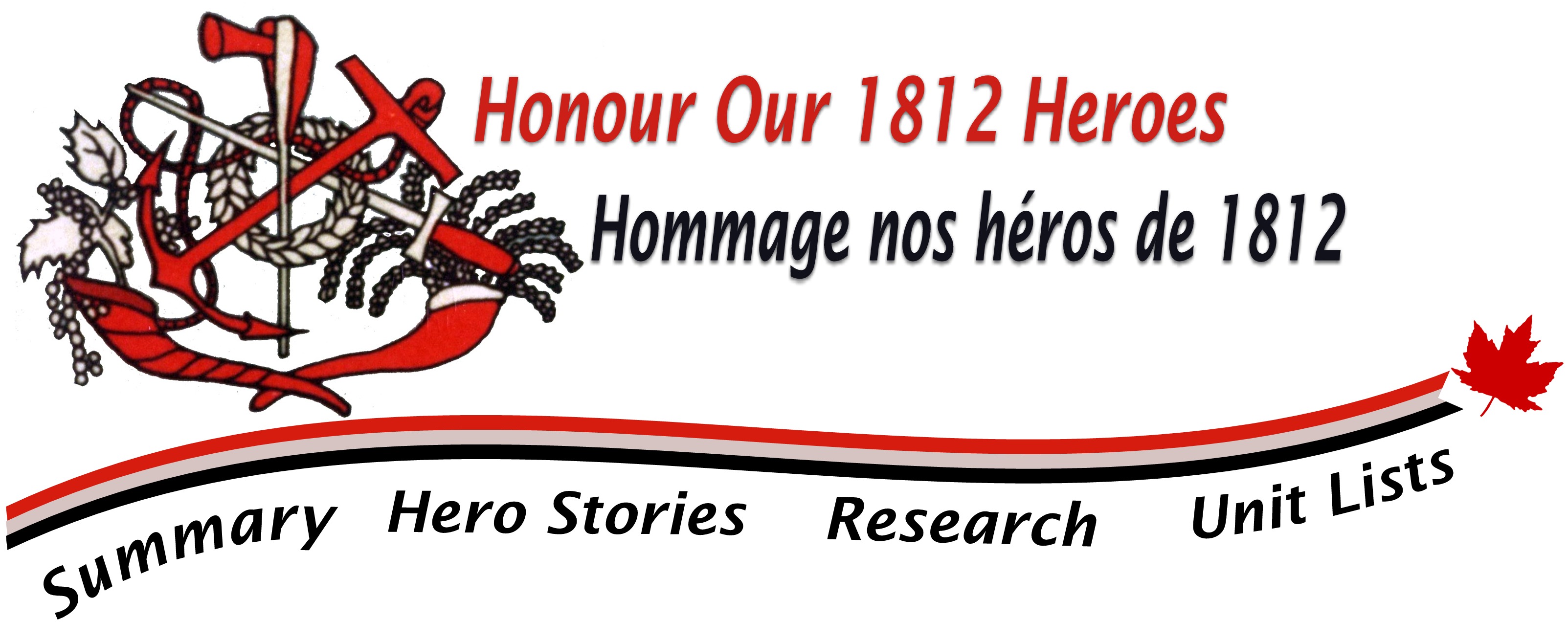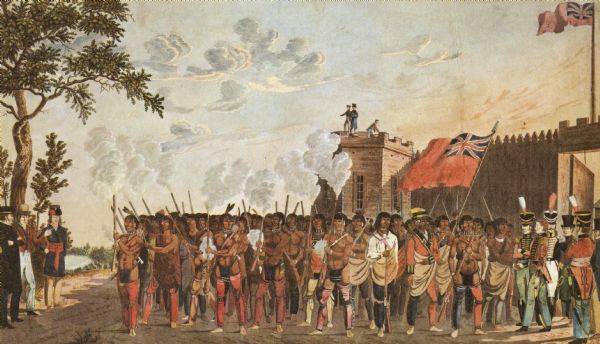

|
| |

Stories of
Canadians
in the War of 1812
ANDREW BULGER (1789-1858)
Royal Newfoundland Fencibles

Andrew Bulger (right without hat) leaving Fort MacKay,
Prairie du Chien, WI (McCord)
Bulger was commissioned an ensign in the newly-raised Newfoundland Fencibles in 1804 and served with his regiment in Newfoundland, Nova Scotia and Lower Canada. He was a lieutenant when war broke out in June 1812 and fought with Brock on the Niagara and at Detroit in 1812 and at Fort George and Stoney Creek in 1813 before being employed on the boat service along the St. Lawrence and fighting at the battle of Crysler's Farm. In 1814, Bulger, now a captain, was sent on a difficult overland winter march with a small party of reinforcements to Michilimackinac in the spring of 1814. Bulger was present when an American attack on that post was repulsed in August and also at the capture of the enemy warships, ""Tigress" and "Scorpion" in September, a feat that ensured British naval supremacy on the upper Great Lakes. Bulger was slightly wounded during the boarding of the "Tigress" but was well enough to be entrusted in October with the command of Fort Mackay, at Prairie du Chien on the upper Mississippi. It was a dangerous post but Bulger kept the Canadian inhabitants of the area safe and maintained the loyalty of the aboriginal peoples.
In early January 1815 he suppressed a near mutiny by convening a general court martial and having the three worst offenders summarily flogged. When news of the peace reached Prairie du Chien in April 1815, Bulger evacuated Fort Mackay. When his regiment was disbanded in 1816 he went on half pay for a number of years but later accepted an appointment with the Hudson's Bay Company to oversee the Red River settlement. He was unhappy in this position and Bulger's later years saw him employed in the administration of Lower Canada.
Today, the Royal Newfoundland Regiment perpetuates the fencible unit Bulger served in during the War of 1812. (Source: Dictionary of Canadian Biography and Bulger's own memoir, An Autobiographical Sketch of the Services of the Late Captain Andrew Bulger of the Royal Newfoundland Regiment, 1836)

 |
Contact Us |
Follow us on: |
 |
The legacy of heroes is the memory of a great name and the inheritance of a great example. - Benjamin Disraeli